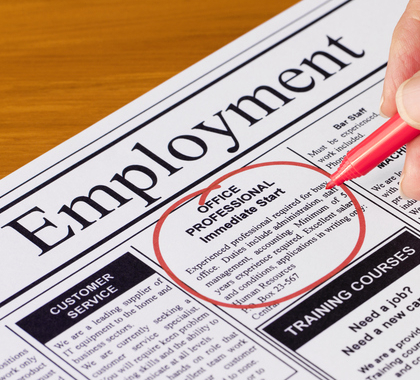Congress is considering raising the federal minimum wage to $15, which the Congressional Budget Office (CBO) estimates could cause the loss of up to 3.7 million jobs.
Hiking the federal minimum wage to $15 an hour could result in a median estimated loss of 1.3 million jobs and a high estimated loss of 3.7 million jobs, states the CBO report, “The Effects on Employment and Family Income of Increasing the Federal Minimum Wage,” released on July 8.
The Raise the Wage Act would increase the current $7.25 federal minimum wage in steps to $15 in 2024. It would be the first federal minimum wage increase in more than a decade. The bill, H.R. 582, has 205 cosponsors and is supported by the Progressive Caucus. The legislation was placed on the Union Calendar for floor debate on July 11. S. 150, an identical measure, was introduced by Sen. Bernie Sanders (I-VT) on January 16.
The legislation calls for three increases in the minimum wage. The first would be an increase to $8.55 in 2019. The bill would also phase out the minimum wage for tipped employees, which is currently $2.13.
Minimum More Than Median?
Currently, the minimum wage in 21 states is set at the federal rate. The 29 other states have adopted their own state minimum wages, varying from just above the federal minimum all the way up to $12 per hour. Dozens of cities have chosen to raise their minimum wage higher than the state requirement, such as San Francisco’s $15 wage.
Potential job losses are debated each time a city or a state proposes to increase its minimum wage, and a federal minimum wage hike would have a vastly greater effect than a single, relatively high-wage city or state changing its law, says Samantha Summers, communications director of the Employment Policies Institute, an employer group.
“If a $15 wage is already causing job loss in New York City, then it will only cause extreme job loss in smaller cities such as Topeka, Kansas,” Summers said.
Median wages vary widely across the country, and in many places the proposed increase would put the minimum above the median or average wage in that area, says Summers.
“In more rural cities, more often than not the median wage is less than $15, so raising the federal wage over the median wage will cause drastic effects and force business owners to lay off employees, consider automation, or close entirely,” Summers said.
Huge Job Losses
In Pennsylvania, many people would be out of work if the minimum wage were increased significantly, says Elizabeth Stelle, director of policy analysis at the Commonwealth Foundation.
“The most recent analysis for Pennsylvania finds a $12 minimum wage would result in a pay bump at the expense of 33,000 jobs,” Stelle said.
“Job loss is the number one unintended impact of minimum wage increases,” Stelle said. “That can have ripple effects. For instance, teens without work experience could have a more difficult time transitioning into family-sustaining jobs.”
Eliminating the Tip Credit
The Raise the Wage Act would eliminate the federal minimum wage for tipped workers, such as restaurant wait staff, called the tip credit, which is now $2.13 an hour. Currently, an employer can pay that minimum to tipped staff unless, tips included, employees make less than the minimum wage. Employers must make up the difference if tips fall short.
Restaurants and other employers would be forced to pay tipped workers significantly more, which would result in even more job losses and business closures than for regular minimum wage hikes, says Summers.
“Eliminating the tip credit would raise labor costs for restaurant and bar owners by nearly 600 percent,” Summers said. “This would have devastating consequences, including forcing owners to lay off employees and reduce hours.”
California and other states that have eliminated the tip credit are experiencing these employment effects, says Summers.
“These effects are already occurring in cities such as San Francisco—in a state where there already is no tip credit—where owners are switching from full-service models to quick service in order to reduce labor costs.”
Owen Macaulay ([email protected]) writes from Hillsdale, Michigan.
Internet Info
“The Effects on Employment and Family Income of Increasing the Federal Minimum Wage,” CBO-55410, Congressional Budget Office, July 8, 2019: https://heartland.org/publications-resources/publications/the-effects-on-employment-and-family-income-of-increasing-the-federal-minimum-wage




